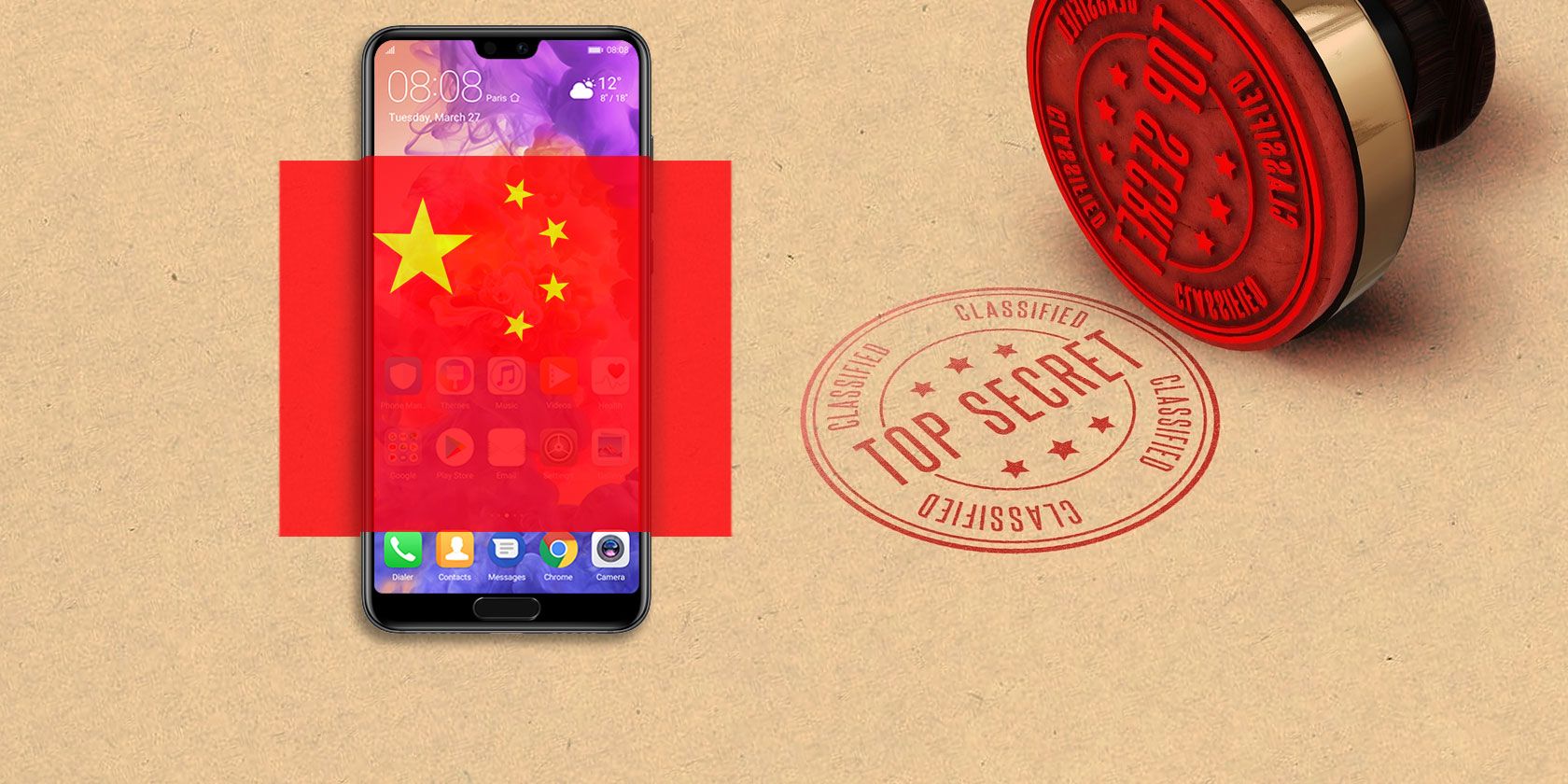
What would you say if I said that your Huawei phone could be spying on you? You’d probably call me a conspiracy theorist. But would you believe that the United States intelligence community feels the same way?
Whether you’ve had previous concerns, or are worried about the privacy of your own Huawei phone, here’s what you need to know.
Are Anti-Huawei Claims Protectionism?
Early in 2018, the head of six major US intelligence agencies issued a warning at a Senate Intelligence Committee hearing. They warned that US citizens shouldn’t use any commercial products offered by Chinese companies Huawei and ZTE.
Numerous tech media outlets dismissed claims from the intelligence community as nothing more than “protectionism”. Tech journalists claimed that there was no solid evidence supporting those claims.
In January of 2018, Motherboard tech journalist Karl Bode wrote that there’s no evidence to support the claims against Huawei:
“The problem: nobody has provided a shred of hard evidence that the company has done anything wrong, raising the question of whether this is glorified protectionism hiding behind the banner of national security.”
However, the US intelligence community isn’t the only government intelligence community to issue such warnings.
Governments Warn Against Huawei
Also in 2018, the U.K.’s National Cyber Security Centre advised telecommunication companies in the U.K. to avoid technology offered by Chinese firm ZTE. The reason? That state-owned ZTE presents a “risk to U.K. national security that could not be mitigated effectively or practicably.”
In 2016, an immigration officer at the Hong Kong consulate in Canada denied immigration applications for two Chinese Huawei employees. The consulate implied that there was evidence of espionage not available to the public. The denial letter stated:
“…there are reasonable grounds to believe that you are a member of the inadmissible class of persons described in section 34(1)(f) of the Immigration and Refugee Protection Act.”
Are these warnings really based on nothing at all? Or are they founded upon real intelligence evidence? History shows that there is reason to believe that Huawei phones are a very real personal and national security risk.
Huawei and the Communist Party
In the 2018 Senate Intelligence Committee hearing, FBI Director Chris Wray explained that much of the concern relates to the very unsettling relationship between all Chinese companies and the Chinese Communist Party.
Wray stated that the government was:
“…deeply concerned about the risks of allowing any company or entity that is beholden to foreign governments that don’t share our values to gain positions of power inside our telecommunications networks.”
The statement “beholden to foreign governments” is a reference to a Communisty Party law that requires all Chinese companies to work for State intelligence agencies if requested. The Communist Party often writes itself into company law, and there’s nothing the company or investors can do about it.
This means that if Huawei were to acquire control over a large part of the telecommunications market in the Western world, the Chinese intelligence community could potentially have access to user data. It could also intercept, or even shut down, all communications from those devices.
The risk is apparently high enough that the Pentagon bans the sale or use of Huawei or ZTE phones on US military bases. Pentagon spokesman Maj. Dave Eastburn hinted that intelligence communities have substantial evidence of a serious threat. He told Fox News, “For security reasons, I can’t get into the technical aspects of potential threats.”
The Canadian government may not be as vocal as the US intelligence community on the matter. But according to Global News, these same devices are also banned from use on Canadian military bases.
Huawei Is Not an Innocent Victim
Tech journalists writing that animosity toward Huawei is unfounded are overlooking the history. There is in fact evidence that justifies avoiding the use of Huawei, KTE, or any other Chinese-made telecommunication products:
- The CEO and founder of Huawei, Ren Zhengfei, joined the Communist Party in 1978. He was also a high ranking member in the engineer corps for China’s People’s Liberation Army (PLA).
- In 2016, numerous Chinese phones, including one branded as “Blu”, were infected with third-party firmware from Shanghai Adups Technology. That software transmitted user data back to Chinese servers.
- In 2012, a group of former intelligence officers known as the Langley Intelligence Group Network (LIGNET) published a surpising report. According to the group, “a sensitive LIGNET source associated with Huawei” reported that Huawei had used an “undisclosed electronic backdoor that allowed it remote access to the company’s equipment without permission.”
- In 2014, a Huawei engineer was caught hacking a mobile tower in Andhra Pradesh. This compromised the Indian government owned Bharat Sanchar Nigam’s (BSNL) network.
- A 2015 FBI intelligence report indicated that Huawei had been subsidized by the Chinese government to the tune of $100 billion. This begs the question, what does the Chinese government get in return for that substantial investment?
- Huawei has been accused of stealing trade secrets from numerous major US companies like Motorola, Cisco, and T-Mobile.
In fact, some claim that the Chinese government’s real interest isn’t national security, but obtaining trade secrets from Western companies. So the real risk of a private citizen owning a Hauwei phone may be if that citizen works for a major US corporation.
Sending and receiving company information over that phone could put trade secrets at risk.
How to Protect Yourself
It is true that you face threats to your privacy and security from other sources that have nothing to do with China. There’s NSA spying, Facebook security failures, and constant phishing threats.
But the threat of Huawei and other Chinese companies tied so closely to the Chinese Government is an entirely different beast. It’s unnerving to think that yet another government might be trying to view your communications and your web usage. Because the malware is baked right into the firmware, it’s nearly impossible for a regular user to identify that it exists.
But what’s more disturbing is the risk that involves your day job.

Consider a scenario where you may use a Hauwei or KTE phone to have a conversation with a friend or a work colleague. It could be a discussion about a business deal, a programming project you’re working on, or important business meetings. You could inadvertently pass along proprietary information to a foreign government without even realizing it.
What global intelligence communities are hinting to the world is that there is enough evidence in their posession to warrant banning these phones from military bases and governments. Even if you don’t believe them, history has turned up enough wrongdoing by these companies to justify very real concern.
Avoiding phones made by Chinese manufacturers is a good start. But don’t forget that there are many other things you need to do to protect the security of your personal data.
Read the full article: Why You Shouldn’t Buy Huawei Phones If You Care About Privacy
from MakeUseOf https://ift.tt/2p5LYjg

No comments:
Post a Comment